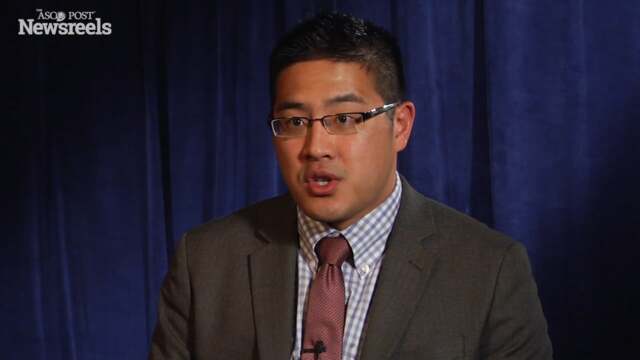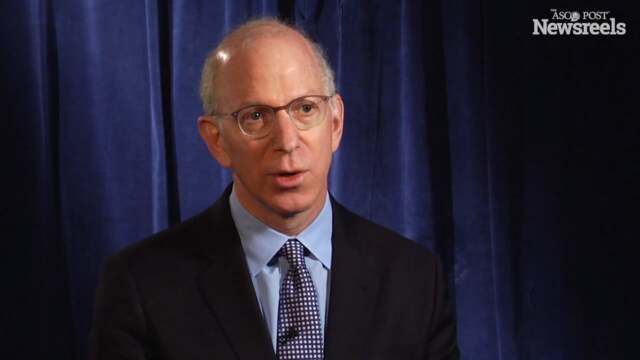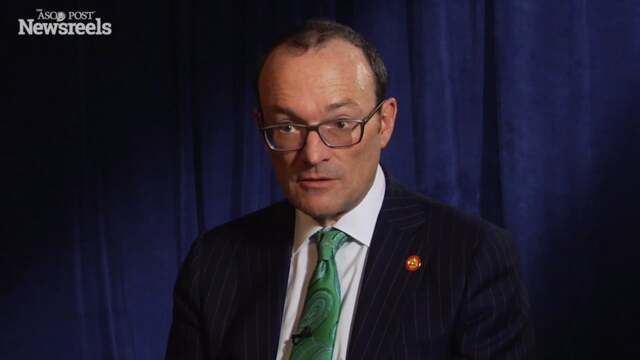Leonard Gunderson, MD, on the Presidential Symposium Lecture on Upper and Lower GI Cancers
2015 ASTRO Annual Meeting
Leonard Gunderson, MD, of the Mayo Clinic College of Medicine, discusses PET/CT imaging in upper and lower gastrointestinal cancers, which can be of value as a baseline study prior to treatment, in determining the degree of response to treatment, and in helping decide whether there is a relapse after a complete response to treatment.
Stephen G. Chun, MD
Stephen G. Chun, MD, of MD Anderson Cancer Center, discusses the comparison of 3D conformal and IMRT outcomes for locally advanced non-small cell lung cancer (Abstract 2).
Howard M. Sandler, MD
Howard M. Sandler, MD, of Cedars-Sinai Medical Center, discusses how adding 24 months of daily antiandrogen therapy during and after radiotherapy was shown to significantly improve long-term overall survival following prostate cancer recurrence after a radical prostatectomy (Abstract LBA5).
Anita Mahajan, MD
Anita Mahajan, MD, of MD Anderson Cancer Center, summarizes results from three clinical trials on radiation therapy for ependymoma, locally advanced thoracic esophageal squamous cell carcinoma, and meningioma (Abstracts 31, 1, 7).
Brian D. Kavanagh, MD
Brian D. Kavanagh, MD, of the University of Colorado School of Medicine, summarizes three papers: outcomes for locally advanced non–small cell lung cancer, 3D CRT vs image-guided intensity-modulated radiotherapy for reducing bowel toxicity, and dexamethasone for controlling pain flares in patients with bone metastases (Abstracts 2, 8, LBA6663).
Roy Decker, MD, PhD
Roy Decker, MD, PhD, of Yale University School of Medicine, discusses a National Cancer Database analysis that showed elderly patients with limited-stage small cell lung cancer can benefit from adding concurrent radiation to chemotherapy (Abstract 1010).





